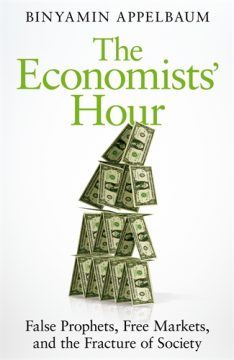Marshall Steinbaum in Boston Review:
 Binyamin Appelbaum’s new book has lived up to its controversial billing, particularly among its subjects. The book condemns the role the economics profession has played in breeding inequality, and holds economists to account for the resulting backlash of xenophobic white nationalism. When the New York Times published an excerpt, the reaction was sadly predictable: How dare he suggest that economists don’t care about inequality? It is only because of economists that we know that inequality has risen. How dare he point out that economists have occupied a privileged position in public life? These behind-the-scenes advisors very close to power should not be implicated in whatever unsatisfactory state of economic affairs exists today.
Binyamin Appelbaum’s new book has lived up to its controversial billing, particularly among its subjects. The book condemns the role the economics profession has played in breeding inequality, and holds economists to account for the resulting backlash of xenophobic white nationalism. When the New York Times published an excerpt, the reaction was sadly predictable: How dare he suggest that economists don’t care about inequality? It is only because of economists that we know that inequality has risen. How dare he point out that economists have occupied a privileged position in public life? These behind-the-scenes advisors very close to power should not be implicated in whatever unsatisfactory state of economic affairs exists today.
This is exactly the privileged carping I feared would arise from the so-called “empirical revolution” in economics. Empiricism has manifestly changed the content of economics scholarship in recent years. On the one hand, economists seem to say, better and more enlightened scholarship now excuses past wrongs, and on the other, economists aren’t really responsible for anything that may have been wrong to begin with. As a result, the rhetoric of empiricism has been weaponized to paper over the field’s culpability and to permit retrograde tendencies to remain in place even as what counts as scholarship has changed.
More here.
